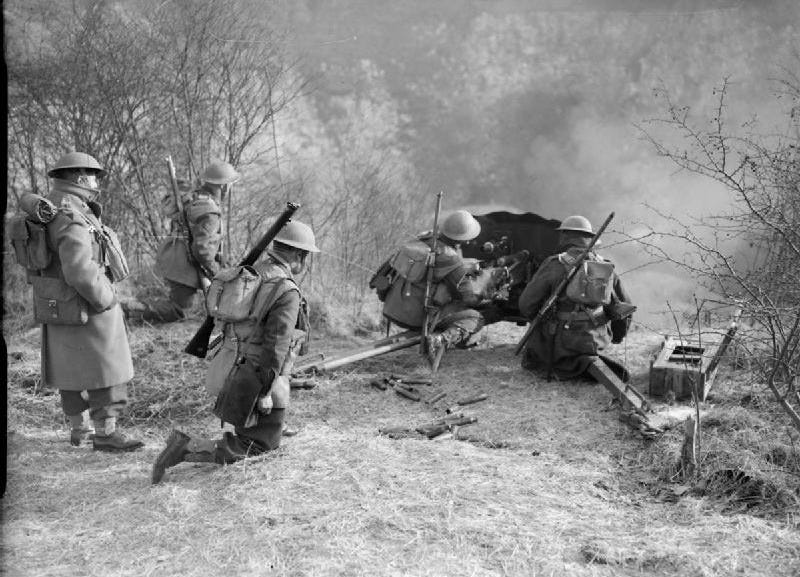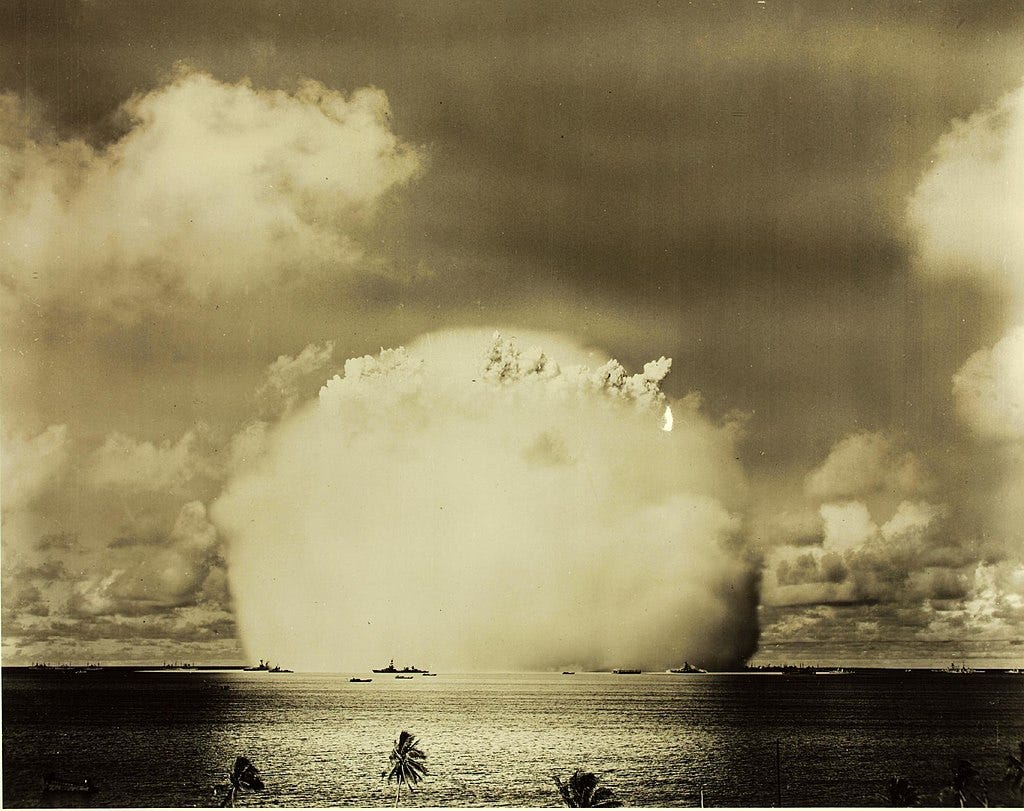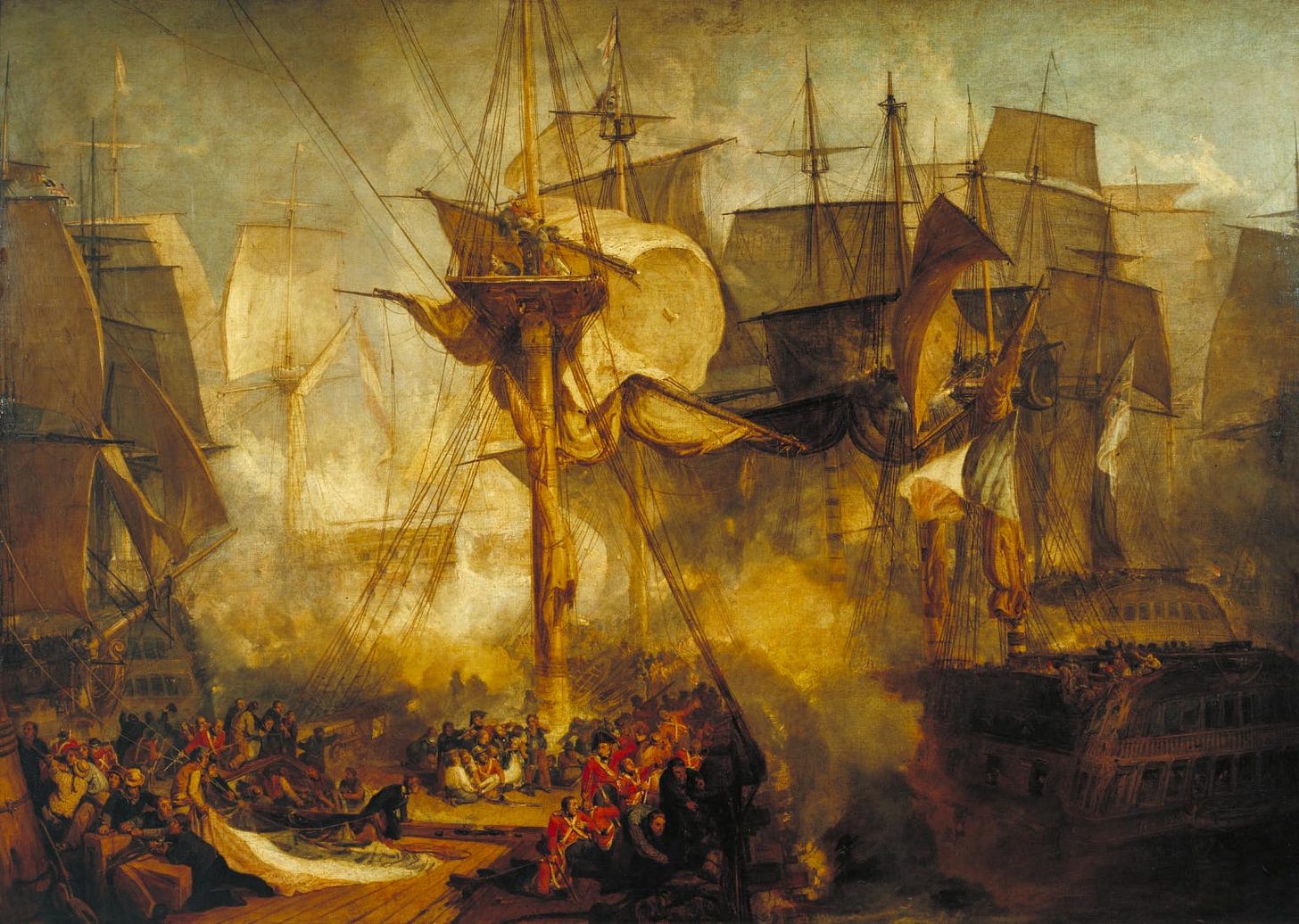
We unfortunately do not live in a peaceable age. There are many wars raging across the world, on almost every continent. A good number of these have been ongoing for many years. Yet, it is noticeable that, amongst western commentators, almost all of them are ignored other than Russia’s war against Ukraine or the continuing tragedy of Gaza and its wider conflagration.1 By contrast, when is the last time you have seen sustained commentary on Sudan, or the upsurge in violence in the Democratic Republic of Congo, or an update on Myanmar? All of them are seeing huge human tragedy, complex politics and rapidly-evolving military adaptation. And yet, the broader discourse (including much of my own writing) mostly ignores them.2
My suspicion is that these wars are sidelined because they don’t, on first glance, offer what most commentators like to talk about. A ‘conventional’ war like that in Ukraine – in the news, heavily documented on film – allows commentators and enthusiasts to talk about the tools of war in the fetishistic euphemisms of military science – ‘capabilities’, ‘weapon systems’, ‘effectors’, ‘precision effects’.3 Ukraine seems like a ‘proper’ war, with a clear good side and a bad side, with tanks and industrial capacity and huge armies. By comparison, the DRC or Myanmar seem hopelessly complicated and messy, and don’t involve enough shiny tech (despite evidence to the contrary) to sustain our imaginations.4
Please don’t think that I’m diminishing the titanic struggle that Ukrainians are waging for their future, nor the devastation wrought upon the Ukrainian people. I’m not in the slightest. What I’m highlighting here is the slant of western defence commentary, especially as it relates to shiny bits of technology. This is true even of coverage of this much-scrutinised war. Have a look through your Ukraine war feeds – how many articles are there about drones, missiles, tanks, etc, and by comparison how many are there about the impact on civilians, or how hospitals, fire stations and businesses are running, or how Ukrainians are maintaining their will in the face of unimaginable adversity?
You might say, with some good reason, that Ukraine is focused on so much because involves the enemy – Russia, for which Europe must prepare for war against, while other wars don’t offer the same useful lessons for western militaries. I would contest that latter point. Ukraine must obviously be studied for its manifold lessons – but so should other conflicts. A reminder that since 1939, the UK has fought one major war and a handful of short conventional conflicts. By contrast, it has almost continually been on operations in small wars, irregular conflicts, and counter-insurgencies. If you push back the timeline this disparity grows even wider. Indeed, if historical trends persist, it is far more likely that British soldiers will find themselves being shot at by non-state militias or insurgents than by Russians.

This doesn’t mean we shouldn’t prepare seriously for a great war – we should, and rapidly. However, history suggests that we will conduct many more ‘sub-threshold’ and ‘small wars’ than we will conventional warfare against a peer threat. This is more so now in a world where the differences between state competition, ‘conventional’ conflicts and irregular warfare are collapsing. Non-state actors are now often as well-equipped as many state militaries and can be found fighting in what we would consider close to conventional operations.5 We ignore them at our peril.6
On History
Let us turn to history. Both professional soldiers and amateur military enthusiasts have always looked to the past for answers to the questions of ‘what will the next war look like’. Usually, the history that people are drawn to is that which is most recent or – importantly – most culturally-dominant in the collective memory. This has been the case for many great writers. Clausewitz’s Vom Krieg was heavily influenced by the author’s experience during the Napoleonic Wars; throughout much of early modern Europe, Vegetius’ De Re Militari – an Ancient Roman tome from the 400s – was a quintessential guidebook for soldiers, so strong was the memorial influence of Rome in the European imagination.
In much of the western world – especially the anglosphere – it is the Second World War which occupies the dominant place in our mindscape of conflict. It is an instant touchstone, the epoch-defining event to which all conversations on ‘war’ must inevitably turn.7

It is not hard to see why. The Second World War was the last ‘great’ war in living memory, at least for Europeans – mercifully, the continent has not experienced awful general suffering on such a scale since. It involved huge sacrifice, titanic mobilisation of all aspects of society, and ended dramatically with the dropping of a weapon of mass destruction. Culturally, it is everywhere. The history shelves of our libraries and bookstores are creaking under the weight of Second World War histories, our screens are filled with a regular drumbeat of documentaries and films about the War, and video games set during the period are extremely popular.8 Most anglophone military enthusiasts and commentators – let’s be honest, the vast majority of whom are men – have been brought up on this cultural diet.9 It is therefore no surprise that the ranks of men who know micro-details about Tiger tanks, D-Day, or the Battle of the Midway, and who will readily bring them up in any conversation about conflict, are legion.10
As such, it often seems ‘natural’ that the Second World War is the obvious starting point for any discussion about general war. However – is it? Are we guilty of over-emphasising the Second World War in our discussion of future conflict and war in general?
Unsurprisingly, I think that we are. This is not just because I am a natural contrarian – though that is true also! However, the Second World War was fought in a particular context that does not always map well onto our current reality, and by focusing on it at the expense of other conflicts we may be missing key lessons that would be useful in our current debates.11
To illustrate my argument, two quick points. The first is that we now live in a nuclear age. This has profoundly changed the strategic calculations of great powers, and how they would go about prosecuting a war. Starting a war with another nuclear power involves not just defeat, but the prospect of utter annihilation – one obvious reason why NATO and the Soviet Union never engaged in direct war with each other post-1945. The concept of a grinding industrial total war ending in ‘unconditional surrender’ by a nuclear-armed great power, in my opinion, is somewhat moot as a result.

Secondly, we live in a far more diffuse international arena. The Second World War was a clash of empires. While the USA and China are today incomparably more powerful than any other country, the world has changed. Where once there were subaltern colonies under the heel of imperial metropolises, there are now independent sovereign countries, each with their own agency, ability, and ambitions. The dawn of the information age, and the need even amongst authoritarians for the whisper of international approval, has broadened the playing field. International public opinion and who supports you matters in a way that wasn’t as prevalent during the Second World War.12
This brings me on to recent historical cases which we should examine more closely. While you will sometimes hear that nuclear powers have never fought a war with each other, this isn’t true – India and Pakistan (both nuclear states since the 1990s) have regularly clashed, most recently only a few weeks ago. More broadly, I imagine very few anglophone commentators (I include myself in this bracket) know much about the many wars between India and Pakistan since 1947, and therefore have learned little from what is surely a ream of valuable experiences of modern warfare. Similarly, the Iran-Iraq War is a major conflict of the late 20th century of which many anglophone commentators (again, myself included) are relatively ignorant. In the modern era, we tend to be exceptionally bad at learning lessons from conflicts that don’t directly involve us.
The First World War is, to be fair, far less forgotten than most other wars, and indeed I am certainly not the first to suggest that there are many interesting parallels to be drawn between it and the current conflict in Ukraine, not least over the eternal firepower/manoeuvre dichotomy and the rapid adoption of technology at the tactical level. I happen to have recently read a selection of British Army field notes from the Great War; replace the terms ‘aircraft’ or ‘machine gun’ with ‘drone’ and you would swear they were written by Ukrainian soldiers in 2025.13 I also think that the first decade of the 20th century leading up to the July Crisis deserves to be studied just as closely as the 1930s for lessons to study in a ‘pre-war’ period.
However, we can reach further back – as indeed, we should. Consistent readers of my writings might have noticed a steady uptick of references to the 18th century and the Revolutionary and Napoleonic Wars. Indeed, I have been absorbed in the early modern period for a good while now, and know far too much about this bewigged age than is probably good for me! The wars of late 17th century and early-to-mid 18th century Europe were undeniably bloody, but often limited in scope, with the different powers unable to fully dominate each other and therefore focused on small slices of land, succession crises, alliances, access for trade, and the personal glory of authoritarian leaders. In a nuclear but increasingly multipolar age, seeing the rise of mercurial strongmen and growing obsession with resources and trade dominance, I think that it is worth looking more closely at this period again.

By contrast, the French Revolutionary and Napoleonic Wars are fascinating not just for their length – lasting over twenty years! – but for their ushering in of what we might describe as one of the first ‘modern’ wars. The case of Britain is particularly interesting during this period – a relatively unmilitarised trading nation that did not like the idea of paying high taxes for large armed forces had to rapidly adapt its disparate industries, finances, and politics to the needs of a great power war, all the while being battered with inflammatory propaganda from a hostile state. Sound familiar at all?14
I have given only a flavour of potential options, and almost all from a European context. I am sure that historians of the Ottoman-Persian Wars, the Manchu conquests, or manifold other past conflicts will have much to say on their relative relevance.
Of course, looking back to the past for future lessons is always, in some respects, a fool’s errand. The inimitable Lawrence Freedman wrote a book several years ago called the Future of War: A History, describing historical attempts to predict the future of conflict. One of the enduring lessons of the study was that we are exceptionally bad at such prediction, especially when estimating the impact of emerging technologies.
Despite this, looking back to the past for parallels and rhyming beats is still helpful. No case study will ever be exact or perfect. But if enough of them rhyme across time, there is a good reason to pay attention – especially when looking less at how technology or military art evolved, but how human beings adapted to changing circumstances under adversity. For this reason alone it is worth casting the net further than just the cultural immediacy of the Second World War.
Conclusion
I wrote this piece to remind the reader – and myself – to look further than the classic touchpoints of our cultural understanding of war, both past and present. What occurred in the Seven Years War, and what is happening in Sudan right now, all could have parallels, contexts, and lessons that are relevant to our contemporary western experience of war – most importantly, the preparation for, and deterrence of, conflict. War is the ugliest and most destructive aspect of the human experience, and yet it is infinitely varied and multifaceted. In order to prepare for it – and, most importantly, avoid it – it is worth looking as far and wide as we can to the experience of our fellow humans both now and in the past.
All the best,
Matthew
I will also add that coverage of the Gaza war is exceptionally politicised, which makes analysis difficult.
I include myself in all these criticisms. This is much a self-reflection as anything.
I have a particular hatred of the term ‘effector’, especially when you could just use ‘weapon’ instead!
They are also far, far less covered by the western press, which contributes to the problem.
Militias like the Houthis have sophisticated anti-air and anti-ship missiles. Russian paramilitaries like Wagner Group have fought not just in Africa and the Middle East, but on the frontlines of Ukraine. Recent reports suggest that M23 in the DRC is growing rapidly in capability and effectiveness - as well as brutality.
Ground Combat has done some good research on a plethora of modern battles - have a look at their data set and take their quiz.
How many conversations on military affairs have you had which inevitably move to ‘well, in WW2…’?
I’ve not been able to find good statistics on Second World War history books compared to others, but as a snapshot: Osprey, which specialises in military history books, has 1393 titles under its WW2 section; by contrast, WW1 has 273.
Anecdotally, I’ve noticed that women who work in defence/security are less obsessed with the Second World War, and are probably better analysts for it.
The only thing that comes close is interest in Ancient Rome – hence the meme about how much men daily think about the Roman Empire…
Before anyone starts having a go at me, yes of course we should still study the Second World War, just not at the exclusion of everything else!
For example, Russia continues to insist that it’s ‘special military operation’ is all about self-defence, protecting Russians etc, and continually courts ‘middle-ground’ nations – international public opinion matters.
The collection is ‘An Officer’s Manual of the Western Front 1914-1918’, in case anyone is interested.
Expect more writings from me on this period of history – I make no apologies…




It’s a really interesting thought. I wonder whether the fact that WW2 encompassed (impacted?) multiple nations in multiple theatres, was at a time of growing media (particularly moving pictures), and provided a rich vein of source material for a rapidly expanding Hollywood post war, may have caused the shaping of perspective and therefore academic interest?
Similarly, I suspect, to you in the search for lessons for the future, I have recently found myself becoming far more interested in the bush wars of Africa in the mid to late 20th century. I believe Africa will be the next major battleground of the 21st Century.
Hi Matthew, another good article and I agree with your points, particularly about studying a broad range of conflict. Studying war it is clear that there are consistent trends, and patterns of conflict that are consistently replayed in all theatres and cultures. Keep up the good work.